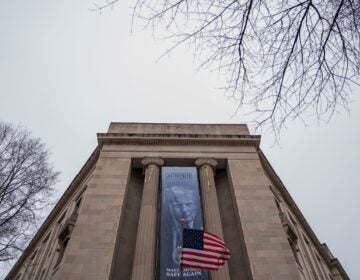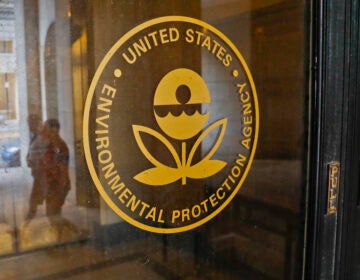Abortion rights win big in 2023 elections, again

Issue 1 supporters celebrate at a watch party, Tuesday in Columbus, Ohio. Ohio voters approved a constitutional amendment that guarantees the right to abortion and other forms of reproductive health care. The outcome of Tuesday's intense, off-year election was the latest blow for abortion opponents. (Sue Ogrocki/AP)
In a handful of states with off-year elections, abortion access appeared to be a winning issue for the second general election in a row, even more than a year after the U.S. Supreme Court overturned Roe v. Wade.
Red state pushback
In what became one of the most closely watched campaigns of the year, Ohio voters approved a ballot initiative putting protections for reproductive health decisions in the state constitution, including abortion at least until fetal viability.
Kelly Hall, executive director of the Fairness Project, which advocates for ballot measures to advance progressive policies, said the amendment’s passage represents voters in a red state — with a Republican governor and legislature — passing abortion protections.
“Ohio is the first state that I really think we can put in that red column that has said, ‘We can go on offense, and we can win,'” Hall says. “And that is an inspiring example that shines a light on the path for other red states.”
Last year, months after the U.S. Supreme Court overturned decades of abortion rights precedent, abortion rights advocates were victorious in six states where abortion-related questions were on the ballot. In 2022, Hall noted, voters in blue states like California and Michigan largely shored up protections, while those in red states like Kansas and Kentucky rejected efforts to restrict the procedure.
The passage of Issue 1 means that a state law banning most abortions after about six weeks of pregnancy will not be able to take effect again in Ohio.
The vote in Ohio followed a special election in August, when Republican lawmakers put a question on the ballot — also called Issue 1 — that would have made it more difficult to amend the state constitution. Ohio voters turned out in larger-than-expected numbers to reject that proposal.
Abortion played out in local elections
Virginia Democrats managed to hold off Republican control of the state legislature.
Abortion wasn’t directly on the ballot in Virginia as it was in Ohio. But the issue was front and center in the campaign.
With the entire legislature up for reelection, Democrats managed to take control of the state House of Delegates while maintaining control of the state Senate — an important goal for abortion rights supporters in a state with a divided legislature and a Republican governor.
Gov. Glenn Youngkin has supported a proposal to ban most abortions after 15 weeks, with some exceptions, and heavily campaigned with Republicans to try to win a trifecta government in Richmond, Va.
As it is, Virginia is the only state in the South that has not restricted abortion in response to the Supreme Court decision last year. Currently, abortion is legal until 26 weeks and six days of pregnancy. With incoming majorities in both chambers, that law seems poised to remain intact.
2 governor’s races maintain status quo on abortion rights
Kentucky Gov. Andy Beshear, a Democrat, won reelection after facing a challenge from the state’s Republican attorney general, Daniel Cameron, who opposes abortion rights and has defended Kentucky’s strict abortion laws in court.
Beshear’s campaign released an emotional ad in which a young woman talked about her experience as a victim of rape by a family member at age 12. She pointed out that Kentucky’s abortion law contains no rape or incest exceptions, saying, “Anyone who believes there should be no exceptions for rape and incest could never understand what it’s like to stand in my shoes.”
Cameron eventually came out in support of rape and incest exceptions, but still lost the election.
Last year, in another likely sign that the state’s abortion laws are out of step with public opinion, Kentucky voters rejected a ballot initiative seen as unfriendly to abortion rights.
In Mississippi, meanwhile, the incumbent Republican Gov. Tate Reeves also won reelection. His Democratic challenger was a relative of Elvis Presley who also opposed abortion rights.
In Pennsylvania, a fight for the court
With the fight over abortion policy increasingly playing out in state legislatures and courts, abortion rights advocates have been paying closer attention to state Supreme Court races.
This year, in Pennsylvania, Democrat Dan McCaffery won an open seat on the state Supreme Court after Planned Parenthood and the American Civil Liberties Union invested in digital ads backing McCaffery over Republican Carolyn Carluccio. The state has a Democratic governor, but groups supporting abortion rights say they want to shore up access for the future.
Abortion also was a focal point in the race earlier this year for a high court seat in Wisconsin, where the liberal candidate won.
9(MDAzMzI1ODY3MDEyMzkzOTE3NjIxNDg3MQ001))




